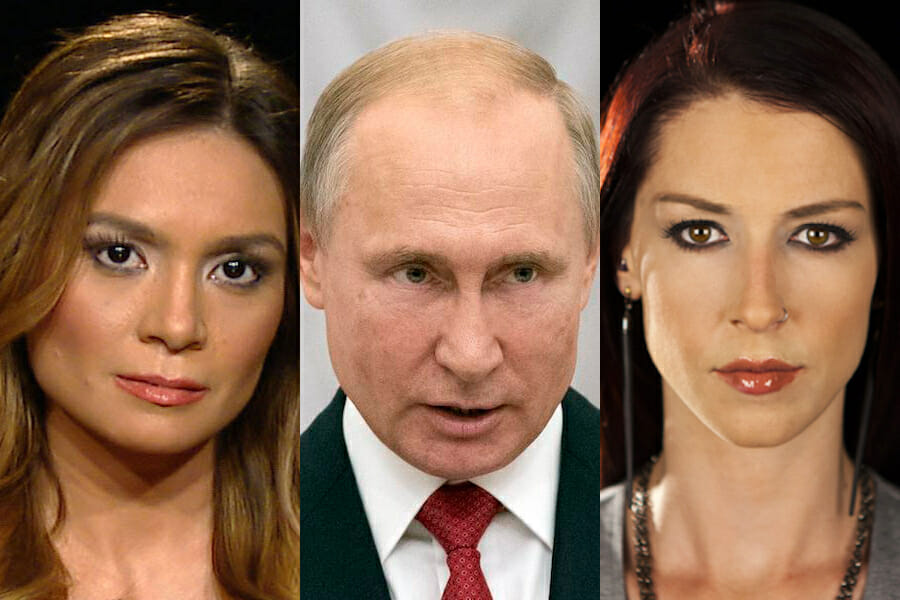
Media
The Journalism Wars: The Resignations at Russia Today
The journalistic credo is a difficult one. The line between corporate sponsored sycophancy and state sponsored guidance is an all too fine one. Little wonder that today’s news scape is awash with such experiments as those of WikiLeaks, or Glen Greenwald’s The Intercept, potent challenges to the numbing twenty-four hour news cycle.
The resignation of Russia Today (RT) America anchor Liz Wahl and the off-script outburst by RT employee Abby Martin on the program “Breaking the Set” have provided yet another example how the Cold War dynamics that lurk beneath the relations of West and East continue to pulsate in discussions. Much of this is fantasy, an attempt to jam events into a historical, necessary frame. Even more of it is palpable laziness, examples of hack appraisals and shallow reading.
Martin made it clear in concluding remarks on March 3 that her position was hers. “Just because I work here, for RT, doesn’t mean I don’t have editorial independence and I can’t stress enough how strongly I am against any state intervention in a sovereign’s affairs. What Russia did is wrong.”
The response from RT was subsequently one of awkward management, suggesting that Martin make a trip under the auspices of RT to cover matters in the Crimea. Get up to speed; get a better picture.
Wahl was more aggressive in her stance, taking aim at “Putinist propaganda” in coverage that made “America look like the bad guy.” The reaction to Wahl was sterner, suggesting that she should have first consulted the editor about her grievances “and, if they cannot be resolved, to quit like a professional.” In making her resignation live and very public, she had made “a big public show of a personal decision.”
Naturally, western media outlets and the pundocracy have leaped at the chance to grab some carrion for their causes. RT is being targeted as an outlet of propaganda, which might well suggest that the swathe of US networks and the landscape of cable television are not. James Kirchick, who has himself appeared on RT, found much to admire in Wahl, and much to detest in RT.
Stories on intervention must “fit the RT narrative, which portrays every Western military intervention as an act of imperialism while depicting Russian ones as more humanitarian attempts at ‘protecting’ local populations, as the network constantly describes Moscow’s role in Crimea.” He also prefers Wahl’s actions to those of Martin, “who will continue to cash Putin’s paychecks.”
Kirchick’s analysis, if it can be termed that, avoids the features that have escaped coverage in the whole plethora of Western, and specifically American, news networks. Little mention is made of US funding of destabilising forces in Ukraine – after all, Washington doesn’t do interventions in the way Putin does, even if it leads to an illegal invasion in 2003 of a sovereign country or conducts shady, undeclared wars by remote control. Almost no mention is made about the roles played in the Georgian-Russian war of 2008, which is only cited to demonstrate Russian bullying. In fact, it was a reckless Georgia, emboldened by the false promise of NATO help, who initiated the first shots.
Certainly, networks such as CNN have their own “narrative” to push. If the Cold War needed to be re-invented, you could trust CNN to do it if it will keep them viewed in the global news cycle. “It may be a new Cold War between Russia and the rest of world.” Little wonder then that Martin and Wahl became celebrities of the US cable moment, while Martin insisted on the Piers Morgan’s show that she rejected both Russia’s and America’s line.
Kevin Gosztola has also pointed out in CNN’s coverage of the RT saga that the network has had its fair share of editorial judgments that have pushed journalists to, and over, the brink. The refusal to run a documentary by Amber Lyon featuring pro-democracy activists in Bahrain was taken as one omitted example. In other words, what is being pushed at that network is what media critic Jay Rosen has termed a “consensus news product,” a staple that invariably winds its way down the dull road of conformity.
Other observations have been less rooted in clumsy assumptions. Laura Bennett at The New Republic suggested that the treatment of Martin by RT, and the due reactions from Western forums, suggest “less a well-oiled Russian propaganda machine than a defensive, shapeshifting retort to the Western media – less focused on a coherent foreign policy agenda than on asserting itself as an alternative to American cable news.” That response was so “miscellaneous,” it might include voices such as Martin and Larry King.
The journalists in question reacted on principle, something which is easily silenced by the power of the pay check. RT, for all its erratic nature, is a punchy effort to correct the dullest of the dull, media outlets which have succumbed to their own narratives, their own devices of self-censorship. Invariably, it also has various, unsavoury lines to push. But to call that network’s coverage of the Ukraine crisis as a “Cold War theme park, without the breadlines,” would be disingenuous. Every network can become the mercy of its own theme.

